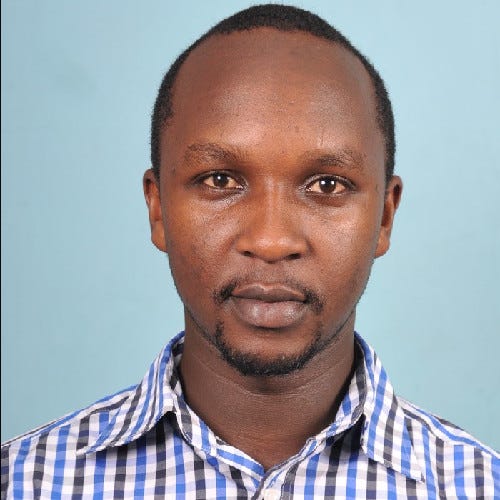Insuretech in East Africa
MotiGuy is a mobility focused insuretech company founded in Kenya in 2018. This week we caught up with their co-founder, Joel Macharia to learn more.
What challenge does Motiguy solve?
We are enabling mobility users to get access to on-demand services through our platform. We do this by leveraging IoT, data and telematics within a single ecosystem of service providers to take the hassle out of the insurance, repair, maintenance and monitoring aspects of mobility.
What‘s the story behind the company?
It started out as a hobby in 2017 where I spent a whole lot of time in garages, parts shops and junk yards looking for parts and reliable mechanics for close family and friends.
The family and friends started passing on referrals and within 6 months I had over 15 drivers picking up and dropping off client cars and charging a convenience fee for that.
It was around that time that I decided to start building a company that could satisfy that need. This is how MotiGuy was born. It was registered in 2018 and has already gone through 3 iterations of different products.
The business has grown to understand the pain points of insurance and vehicle repair and maintenance and has created a product that seeks to address this challenge holistically.
What were you doing before founding the company?
My background is in tech, having done my undergraduate in computer science. I have worked with telcos, startups, conglomerates in a technical capacity, setting up tech teams, building products, setting up infrastructures and later consulting for a few of them.
How did you get Motiguy off the ground?
I went through the first Google Launchpad for Africa in Lagos and Nairobi back in 2018 with another startup.
It was then that I developed the startup core competencies; from ideation to product market fit and scale as well as the nudge to go ahead and start working full time on MotiGuy.
I later went through the first Antler cohort in Nairobi, where I met my co-founder, Ian Mbote. We hit the ground running and we have been building the business one brick on top of another since then.
How much money have you raised so far?
We have been bootstrapping all this while, luckily for us the need in the market has been largely unaddressed, so we have been generating revenues through word of mouth and referrals.
We are however raising our first seed round via a handful of Angels and hopefully we can close our round by the end of this quarter.
What’s your tech stack?
We have different applications but below is a list of our stack:
Frontend: Angular, Django, React
Backend: Python, Java
Database: Oracle, Postgres
Hosting & Infrastructure: AWS
Where do you currently operate?
We are currently working in Kenya, Tanzania and Uganda. Over the coming years we hope to expand to the other major regions in Africa.
What’s your business model and how have you grown your user base?
We have a hybrid of subscription and commission based models across our service offerings. We are particularly focussed on the B2B side where we have been leveraging business development techniques for client acquisitions and referrals.
What metric do you use to measure success?
Value for money is our most important criteria for measuring our success. We want our partners/customers to know that they will receive the very best value for every shilling they spend.
What’s the most useful tool you use in your business?
AWS has a host of features that have proved critical in our growth. The costs can rack up over time but the value outweighs the cost for us. It enables us to scale up/down when need be and automate most of the processes.
The other tool that is equally important is the OKR document, a skill learnt in Google Launchpad, where we set our objectives and match them with key results.
What do you love most and least about running Motiguy?
I love solving problems for my clients even when it requires that we go off the tangent from our core mandate. I also love listening to feedback on the UX from our customers. We have put in a lot of effort in this, so once a client is satisfied it gives us so much joy.
When running a company, there is are a lot of management items that come up that can be frustrating, whether it is regulatory hurdles or running out of runway especially while bootstrapping. This could demotivate you but it's well worth it especially when you are delivering value for your clients.
What company do you look to for inspiration and why?
Globally speaking I look to Tesla. As we are mobility-focussed company the strides they have made in a seemingly impenetrable market is inspiring.
Locally speaking Safaricom has to be on top of the list. What they have achieved in 20 years is astronomical in terms of delivering value to their customers and making it very convenient to send money from the comfort of one's phone.
What’s the most important lesson you’ve learnt so far?
To never stop learning. I’m a limitless learner.
What are your views on the African tech ecosystem?
The tech ecosystem is opening up pretty fast. A lot of startups are cropping up that are putting us on the map globally. However, I still believe that we can do better. Africa needs solutions for Africans built by Africans in the African context.
Also the investors coming into this space need to throw away the old rulebooks they have been using in other places and be willing to learn the African way and fund more local entrepreneurs.
In the News 🚀
🇳🇬 Nigerian logistics company, GIG Logistics, recently launched in the UK.
🇾🇪 Egyptian laundry app, Laverie, raised a 6-figure funding round from investment firm A15.
🇯🇵 Japanese VC, Samurai Incubate, has closed an $18.4 million fund for pre-seed, seed and Series A investments in African tech startups.
🇬🇭 Ghanaian fintech startup, Zeepay, has acquired a 51% stake in Zambian counterpart Mangwee as it looks to expand its operations into Southern Africa.
Are you a founder or investor? Want to feature in our interview series? Apply here.





